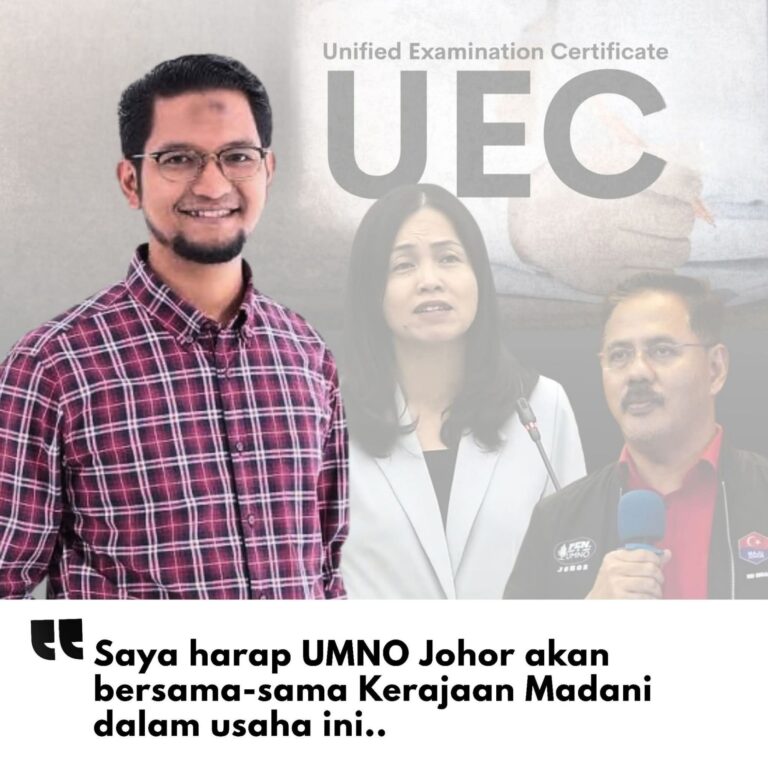
By Shazlin Niza Ab Razak
Every semester, I meet a new group of students whose expressions change the moment I mention MUET. Shoulders stiffen, eyes widen, and the room grows heavy with unease. The Malaysian University English Test, designed to gauge language proficiency, has become a source of quiet dread for many pre-university students.
As an English lecturer, I have watched talented individuals allow fear to overshadow their ability. They speak with poise in class yet falter at the very mention of the test. They worry about mishearing instructions during the listening paper, running out of ideas in the writing test, or freezing during the speaking component. Beneath all this lies a shared anxiety, the fear of not being good enough.

What I remind them is simple: MUET is not a monster. It is merely a ticket to your degree programme, a rite of passage rather than a judgment of your intelligence or creativity. It serves as a checkpoint to ensure that you can use English effectively in academic contexts. Once you recognize that MUET is only one step in a much longer journey, the fear begins to fade into perspective.
Most exam anxiety stems from uncertainty. What we do not understand, we often fear. The first step to overcoming MUET anxiety is to become thoroughly familiar with the test. Learn its structure, which includes listening, reading, writing and speaking, and study how each section is assessed. Practice with past-year papers and timed exercises until the format feels predictable. When you understand what to expect, confidence replaces hesitation, and the unknown becomes less intimidating.
Another major cause of stress is comparison. Many students measure themselves against peers who seem more fluent or self-assured. They forget that language learning is deeply personal. Confidence is not innate; it is cultivated through persistence and patience. Even native speakers make mistakes, and perfection should never be the goal. What truly matters is clarity of thought and the ability to express ideas with purpose and sincerity.
To manage MUET anxiety, I often share three strategies that have proven effective over the years.
The first is simulation. Recreate a real exam environment at home. Sit in silence, time yourself, and complete each paper without interruption. This conditions your mind to remain steady under pressure. When the actual test day arrives, you will feel composed rather than caught off guard.
The second is structured preparation. Avoid last-minute revision or random bursts of study. Establish a practical schedule that targets one skill at a time. For example, devote one day to listening comprehension, another to essay writing, and another to speaking practice. A consistent plan brings rhythm and reassurance, transforming panic into purpose.
The third is emotional control. Anxiety feeds on self-doubt, so discipline your thoughts as well as your language. Take slow, deliberate breaths before each paper. Replace “I am not ready” with “I have prepared, and I am capable”. Confidence does not mean the absence of fear; it means proceeding with composure despite it.
Most importantly, focus on communication rather than perfection. Many candidates panic during the speaking test because they are overly conscious of grammar. Examiners are more interested in clarity and coherence, clarity, and genuine engagement. Speak naturally, support your opinions with examples, and interact politely. Authenticity often leaves a stronger impression than memorized responses.
Treat MUET as a bridge that leads you toward your degree, not a wall that blocks your path. It is a necessary stage in your academic ascent, a brief moment that will soon pass. Face it, prepare for it, and move beyond it.
When you walk into the examination hall, do so with quiet confidence. You are not defined by a band score but by the courage and discipline that brought you there. MUET is only temporary. It is merely a ticket that grants you entry into your degree studies. The confidence you gain from confronting your fear will serve you long after the test is over.

Shazlin Niza Ab Razak is the English Language Lecturer at the Centre for Foundation Studies in Science (PASUM), Universiti Malaya














